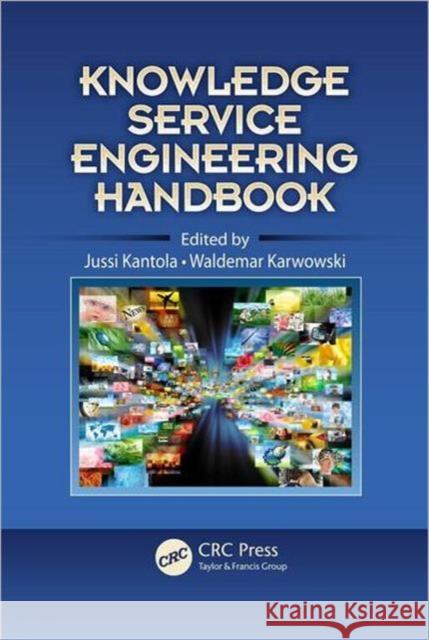Knowledge Service Engineering Handbook » książka
Knowledge Service Engineering Handbook
ISBN-13: 9781439852941 / Angielski / Twarda / 2012 / 599 str.
Knowledge Service Engineering Handbook
ISBN-13: 9781439852941 / Angielski / Twarda / 2012 / 599 str.
(netto: 746,32 VAT: 5%)
Najniższa cena z 30 dni: 755,61
ok. 16-18 dni roboczych.
Darmowa dostawa!
Edited by Jussi Kantola, the founding faculty member of the world s first university Knowledge Service Engineering Department at Korea Advanced Institute of Science and Technology, and Waldemar Karwowski from the Department of Industrial Engineering and Management Systems at UCF, Knowledge Service Engineering Handbook defines what knowledge services engineering means and how it is different from service engineering and service production. This groundbreaking handbook explores recent advances in knowledge service engineering from the accomplished researchers and practitioners in this field from around the world and provides engineering, systemic, industry, and consumer use viewpoints to knowledge service systems and engineering paradigms. The handbook outlines how to acquire and utilize knowledge in the 21st century presenting multiple cultural aspects including US, European, and Asian perspectives. Organized into four parts, it begins with an introduction to the main concepts of knowledge services. It then explores data, information and knowledge based engineering methods and applications that can be used to develop knowledge services, followed by discussions of the importance of human networks in knowledge services. The handbook concludes with descriptions of high-performance knowledge service systems. This structure allows different uses: the information can be looked up as needed or read in the order presented. As with any new field, the excitement lies in seeing how to combine these advances in data, information, and human parts of knowledge services in the future. While most books on this subject concentrate on data, information, or knowledge, this handbook integrates coverage of all three, thus providing a complete examination of sustainable knowledge services. The handbook has been carefully designed to be of use to professionals who develop new knowledge services and related businesses, for academic researchers and lecturers to start new research projects, and for students studying knowledge services, knowledge service production, and knowledge service business. "











